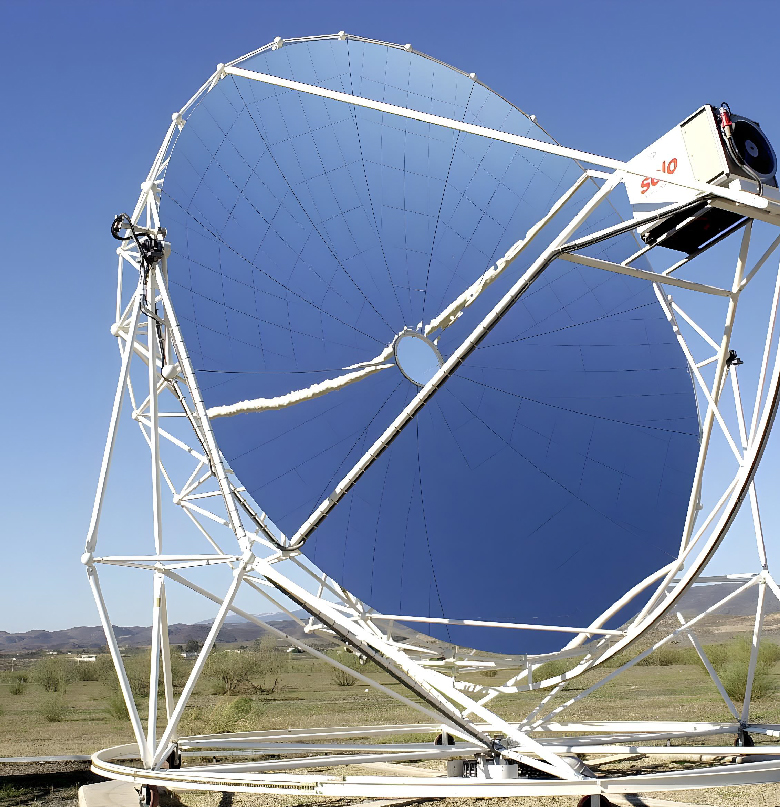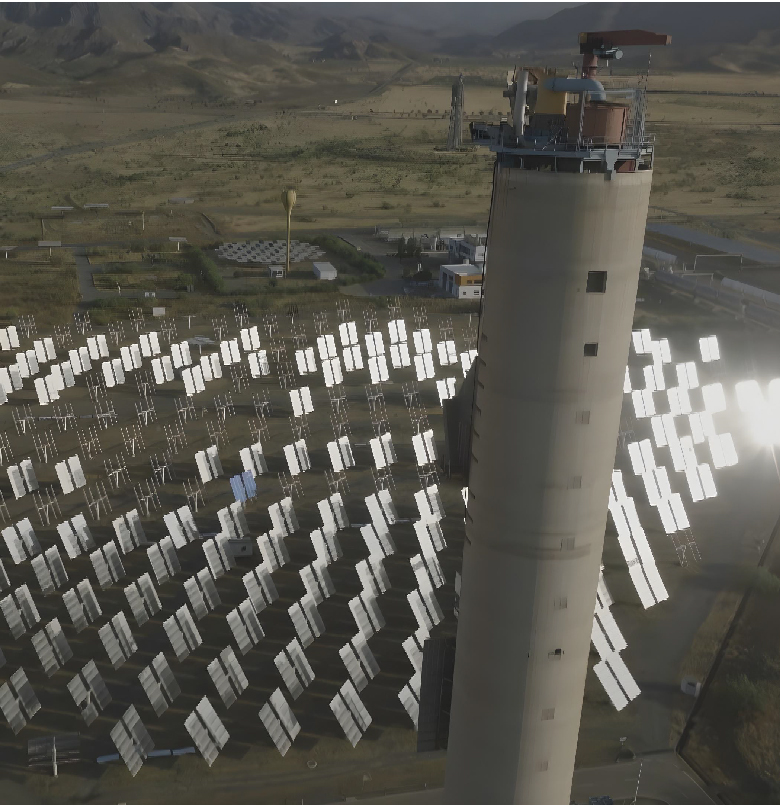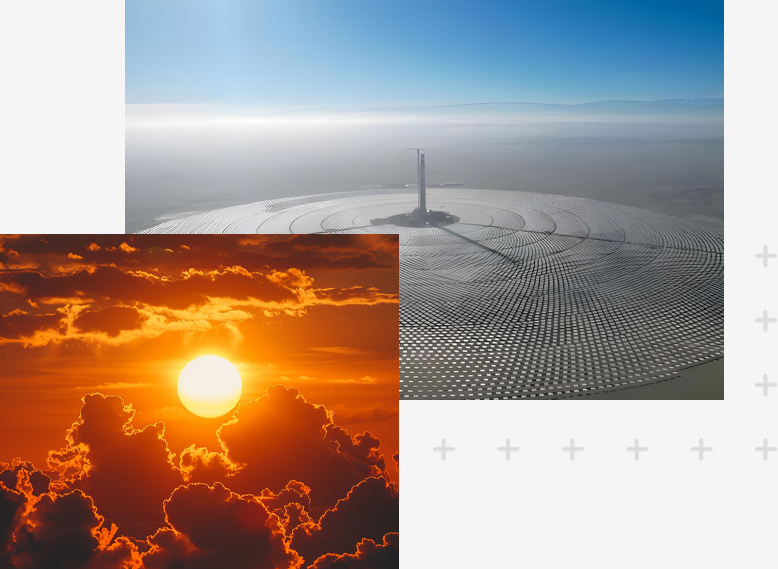About
SOLARIZE Project

Introduction
(CST in a nutshell)
Concentrated Solar Thermal (CST) technology uses mobile mirrors to track the Sun and concentrate direct solar radiation onto a receiver, where a fluid is heated. The temperatures reached in this fluid (usually air, water/steam, or synthetic oil) can go up to 2000°C. This powerful source of thermal energy can be used in many applications, with electricity generation (Concentrated Solar Power, CSP) being the one that achieved commercial deployment in the 1980s. In this application, steam is superheated to around 540°C to drive a turbine. Although there is already a market, the ‘boom’ experienced by PV or Wind technologies has not yet occurred.

Other suitable applications, most of them within a range of several hundred degrees, include materials processing, hydrogen production through thermochemical processes (water splitting), water desalination, and more. Most energy-intensive industrial processes are capable of integrating solar heat, which makes the integration of this technology a field of R&D in itself. The most remarkable advantage of CST technology is its ability to provide cheap thermal energy storage. This sets it apart from other renewable energy sources, making it the most “dispatchable” one. Europe has been investing in R&D since the 1970s, which is why the most important laboratories are located on European soil, such as PSA (Spain), PROMES (France), ISR-Jülich (Germany), PROTEAS (Cyprus), and the Casaccia Research Center (Italy).

These labs have been cooperating for a long time and have notably contributed to the EU-SOLARIS initiative since 2010. After a successful ‘Preparatory Phase Project’ (2012-2016) funded by the European Commission, there was a problem with the leading institute, which eventually dissolved. This led to a period of reorganization, rethinking the concept, and relaunching the initiative with new leadership in 2018. Since then, the necessary steps have been taken with a modest approach, culminating in the achievement of ERIC status in November 2022 and the establishment of governance bodies in January 2023.
Now, EU-SOLARIS ERIC is set to lead Europe’s path, not only in R&D but also in the industrial development of CST technologies, helping to drive the much-needed boom in CST, especially in light of the current global energy crisis (REPower EU, Green Deal, Fit-for-55, Ukraine war, etc.)
SOLARIZE General Objectives
01
Increase membership of EU-Solaris ERIC.
02
Further involvement of R&D institutes and funding institutions.
03
Educate researchers on using research infrastructures.
04
Reinforce international cooperation and science diplomacy.
05
Improve staff managerial skills.
06
Strengthen industry-researcher interaction.
07
Raise awareness of CST applications (e.g., industrial process heat).
08
Develop new standards and testing protocols for CST.
09
Create e-infrastructure for Remote/Virtual access to R&D centres.
10
Improve hybridization by combining CST with other energy sources.
11
Promote green technologies and methodologies in CST RIs.
Project Ambitions:
The SOLARIZE project aims to enhance the long-term sustainability of the EU-SOLARIS ERIC through three main areas of focus:

Strengthening the EU-SOLARIS ERIC (Internal):
- Establish internal governance and advisory frameworks to ensure smooth long-term operations.
- Implement a quality assurance plan and provide management training to adapt skills for the unique structure of the ERIC.
- Develop a Strategic Research Agenda for CST in collaboration with industrial associations to guide scientific direction beyond the project’s duration.
Positioning the EU-SOLARIS ERIC (External):
- Strengthen connections with stakeholders by organizing national events, appointing an Industry Liaison Officer, and holding regular training events.
- Build a strong institutional image and enhance outreach through a comprehensive Dissemination, Exploitation, and Communication Plan.
- Expand international cooperation with CST research institutes worldwide and engage proactively with policy-making institutions to influence global discussions on renewable energy.
Provision of Enhanced Services:
- Identify industry needs and develop a portfolio of industrial standards to support European competitiveness.
- Publish a service portfolio for CST and related applications, and build the central node and side-nodes of the ERIC’s e-infrastructure.
- Facilitate virtual and remote access to partner facilities and explore synergies with other energy sources for efficient use of RIs.
